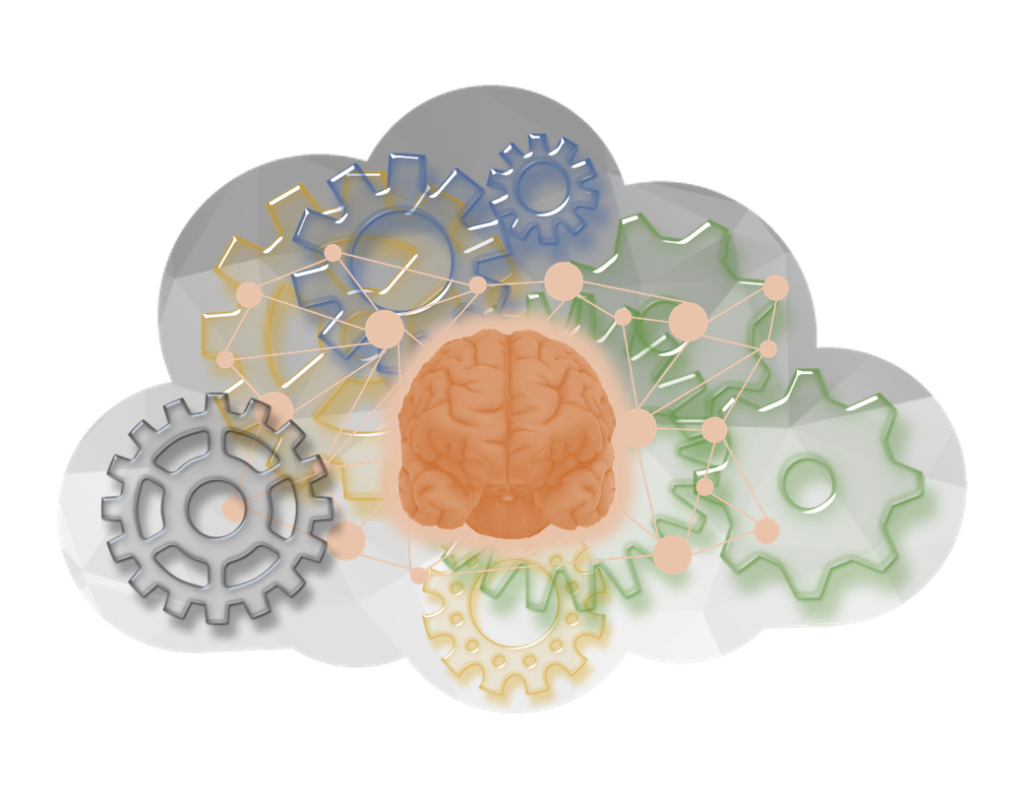A number of analysts have declared 2017 the year of artificial intelligence (AI). AI is a big field which includes things like cognitive computing and machine learning. Chris Brandt explains, “There are two very popular words in science and technology nowadays — artificial intelligence and machine learning. For a lot of people who might not be aware of the difference, they are just the same. It might come, therefore, as a surprise that these two are different. In a nutshell, artificial intelligence is the general word or category that is given to describe the idea of machines being able to perform tasks that we label as smart. Machine learning, on the other hand, is a new concept within the big idea of artificial intelligence which maintains that machines can be given data to learn by themselves.”[1] You might be asking: So what? What can machine learning (ML) do for my business?
Machine Learning and Business Problems
Anastassia Fedyk, a Ph.D. candidate in business economics at Harvard Business School, asks and answers that very question. “How can you know which problems in your business are amenable to machine learning,” she asks. “To decide, you need to think about the problem to be solved and the available data, and ask questions about feasibility, intuition, and expectations. Start by distinguishing between automation problems and learning problems. Machine learning can help automate your processes, but not all automation problems require learning. Automation without learning is appropriate when the problem is relatively straightforward. These are the kinds of tasks where you have a clear, predefined sequence of steps that is currently being executed by a human, but that could conceivably be transitioned to a machine. This sort of automation has been happening in businesses for decades. … So what are good business problems for machine learning methods? Essentially, any problems that: (1) require prediction rather than causal inference; and (2) are sufficiently self-contained, or relatively insulated from outside influences.”[2] She continues:
“Examples of good machine learning problems include predicting the likelihood that a certain type of user will click on a certain kind of ad, or evaluating the extent to which a piece of text is similar to previous texts you have seen. Bad examples include predicting profits from the introduction of a completely new and revolutionary product line, or extrapolating next year’s sales from past data, when an important new competitor just entered the market. Once you verify that your problem is suitable for machine learning, the next step is to evaluate whether you have the right data to solve it. The data might come from you, or from an external provider. In the latter case, make sure to ask enough questions to get a good feel for the data’s scope and whether it is likely to be a good fit for your problem.”
Eric Bussy (@Eric_Bussy), Worldwide Corporate Marketing and Product Management Director at Esker, insists, “Many businesses have yet to understand the full potential of machine learning and cognitive computing for back office processes. The benefits range far beyond simply increased productivity and faster supply chains. Today’s advanced algorithms have the computational power and speed to gather, analyze and manage vast repositories of data. As the Internet of Things (IoT) transitions from theoretical to practical application, information harvested at every touch point in business operations will provide opportunities for insights into areas no traditional analysis has yet explored. The amount of data is too vast for humans to adequately mine and leverage. The key to gaining those insights — and keeping pace with competitors — is machine learning.”[3]
Transforming Your Business with the Help of Machine Learning
Ronald Bailey (@RonaldBailey) asserts machine learning is one of three technologies that will transform the world over the next decade.[4] “Blockchain, CRISPR, and machine learning,” he writes, “are three core technologies whose elaborations during the next decade will conjure into existence a world with far less transactional friction, amazing cures, and much smarter machines.” Most businesses aren’t out to transform the world. They would just be happy to improve their operations and become more profitable. Barry Libert (@barrylibert) and Megan Beck, partners at OpenMatters, state that machine learning can uncover new drivers of hidden value in your company.[6] They explain, “Today, technology has advanced to enable companies to trade on the intangible, but ideas and relationships are much harder to measure and manage than production and inventory, which has left many leadership teams without a compass. Luckily, machine learning and big data analytics are helping executives close the gap and manage the intangible.” Laurence Bradford (@learncodewithme), creator of Learn to Code With Me, agrees that machine learning can transform businesses and she suggests it should be perceived as a business partner not just a business tool.[6] She writes, “Machine learning is an incredibly powerful tool when it comes to growing a business.”
McKinsey Global Institute (MGI) partner Michael Chui (@mchui) told Information Week‘s Jessica Davis (@jessicadavis), “Some of the most cutting-edge, exciting things that are happening in data analytics are really in the area of machine learning. We found that the potential is actually very widespread — both at the industry-problem level and at the level at which these technologies can help to automate things we currently pay people to do. There is actually no problem and no activity where these types of technologies can’t help improve performance.” Louis Columbus (@LouisColumbus), Director of Global Cloud Product Management at Ingram Cloud, reports a McKinsey study concluded, “Machine learning’s potential to deliver real-time optimization across industries is just starting to evolve and will quickly accelerate in the next three years.”[8] He continues:
“Enabling autonomous vehicles and personalizing advertising are two of the highest opportunity use cases for machine learning today. Additional use cases with high potential include optimizing pricing, routing, and scheduling based on real-time data in travel and logistics; predicting personalized health outcomes, and optimizing merchandising strategy in retail. McKinsey identified 120 potential use cases of machine learning in 12 industries and surveyed more than 600 industry experts on their potential impact. They found an extraordinary breadth of potential applications for machine learning.”
Summary
Machine learning is not right for every problem. As Fedyk pointed out, some automation processes don’t require learning. But as McKinsey analysts found, machine learning has amazingly broad application across industries. Your company would do well to explore whether it could help transform (or just improve) your business operations. Fedyk concludes, “Armed with knowledge, understanding, and reasonable expectations, you are set to reap the benefits of machine learning.”
Footnotes
[1] Chris Brandt, “Machine Learning Is Very Different Than Artificial Intelligence,” University Herald, 8 December 2016.
[2] Anastassia Fedyk, “How to Tell If Machine Learning Can Solve Your Business Problem,” Harvard Business Review, 25 November 2016.
[3] Eric Bussy, “How Machine Learning is Changing the Way the Back Office Does Business,” Inside Big Data, 14 December 2016.
[4] Ronald Bailey, “3 Technologies Will Utterly Transform Your World in the Next Decade,” Reason, 30 December 2016.
[5] Barry Libert and Megan Beck, “Machine Learning Uncovers New Drivers Of Company Value,” Forbes, 29 December 2016.
[6] Laurence Bradford, “Machine Learning: Why AI Should Be Your Next Business Partner,” Forbes, 30 December 2016.
[7] Jessica Davis, “Machine Learning, Analytics Offer Untapped Potential, McKinsey Says,” Information Week, 29 December 2016.
[8] Louis Columbus, “McKinsey’s 2016 Analytics Study Defines The Future Of Machine Learning,” Forbes, 18 December 2016.





